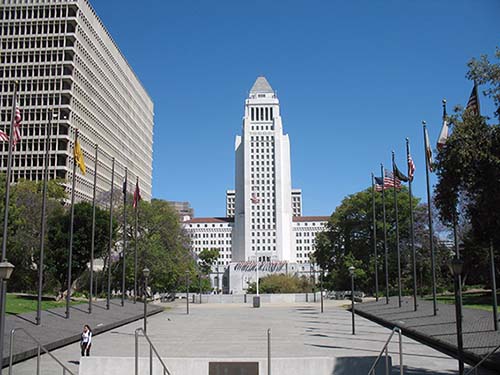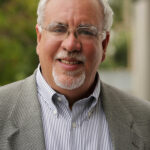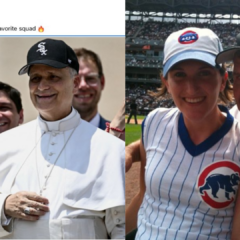Since the mid 1950s Los Angeles has been the second largest Jewish community in the United States, but has never had a Jewish mayor. New York, by contrast, elected its first Jewish mayor, Abe Beame, in 1973, followed by Ed Koch and Michael Bloomberg (currently serving).
Most L.A. Jews expected that Zev Yaroslovsky would be our first Jewish mayor. It’s hard to imagine a more Jewish mayor than Zev Yaroslovsky. Zev’s roots are in L.A.’s two most recognizably Jewish neighborhoods: Boyle Heights and Fairfax. His father was a founder of the Hebrew Teachers Union of Los Angeles and Zev taught Hebrew school as well. In the early 1970s I protested various Soviet sponsored events (such as the Bolshoi Ballet) with Zev as part of Student Struggle for Soviet Jewry. This past August Zev announced that his 40-year career of elective office would end. Acknowledging the disappointment of those who still hoped he run for mayor, Zev thanked “…the many people who have given me advice and encouragement during the period that I have weighed this decision.”
Even without Zev in the race, there’s a good chance that the next election will finally install a Jewish mayor in L.A. Two out of the leading mayoral candidates are Jews and third is married to a Jew. All three are synagogue members. Their stories reflect the changing face of American and Los Angeles Jewry.
Eric Garcetti’s father, Gil (the former district attorney) is of Mexican and Italian descent and his mother is Jewish. That makes Eric Jewish according to halacha (Jewish religious law). In a Jewish Journal interview with Bill Boyarsky last year (December 19, 2012), Garcetti reflected on his Jewish background and current identity. Like the majority of children in Jewish-Christian marriages he grew up in mixed traditions: “I always felt myself to be Jewish and Latino very comfortably…Weekends were both filled with bowls of menudo and lots of bagels.” Three out of four adults of mixed Jewish ancestry marry non-Jews, and this is also true of Garcetti, but in other ways he is more Jewish than other Jews of mixed-ancestry. Whereas most children of Jewish intermarriages have no formal Jewish experiences and do not identify with Judaism as adults, Garcetti went to Jewish camp and is a practicing Jew. He is a member of IKAR, described by its spiritual leader, Rabbi Sharon Brous, as “a new model of Jewish community — one that would challenge assumptions and push boundaries, one that would help us reimagine what Jewish life and Jewish practice could look like.” (Jewish Journal June 22, 2010).
The “go to” expert on L.A. politics is Raphe Sonenshein, director of the Pat Brown Institute at Cal State Los Angeles. In his book, Politics in Black and White, he documented the coalition of Jews and African Americans that brought Tom Bradley into office. That coalition is now running for mayor in the person of Jan Perry, an African American who converted to Judaism more than thirty years ago. She first became interested in Judaism while an undergraduate at USC where her spiritual quest brought her to the then-Hillel director, Rabbi Laura Geller (now my rabbi at Temple Emanuel of Beverly Hills). As she recently explained to Bill Boyarsky (Jewish Journal, July 25, 2012), she was “on the hunt for something big. Why am I here? What is my purpose, my role as a woman, my role in society?” She formally converted to Judaism with Rabbi Chaim Seidler-Feller a few years later when she was a graduate student at UCLA. She is the only candidate I can claim to know personally (and believe me, I will if she is elected). We met when I spoke at a Hillel Board retreat; she was on the Hillel board and working for Councilman Mike Woo at the time. If Jan Perry becomes mayor, she will be both the first Jew and the first woman to hold that office. Like Wendy Gruel and Eric Garcetti, Jan Perry is also part of a larger trend. As part of a project at the Center for Religion and Civic Culture, I am working with the 2007 Pew Religious Landscape Survey. That survey reveals that Southern California Jews are the most racially diverse of any community in America: close to one-in-five Jewish respondents in Southern California described themselves as non-Anglo (i.e. as Hispanic, Black, mixed-race, or something else).
Wendy Gruel, born and raised Christian, is married to a Jew, so she is part of what is now becoming the typical Jewish family. More than half of all recent Jewish marriages are intermarriages and roughly 60 percent of Jewish children now have a non-Jewish parent. Hers is not a typical Jewish intermarriage. Less than one out of four intermarried Jews belongs to a synagogue and only 18 percent of non-Jewish women married to Jews raise their children in Judaism. Gruel and her husband, by contrast, belong to a synagogue and they are raising their ten-year-old son in Judaism. In a recent interview with Wendy Gruel (Jewish Journal January 23, 2013), Bill Boyarsky asked her about conversion: “It certainly is a part of my perspective of something I would like to do…My husband has always been at a point where he would love to have that happen…It is something we have talked about doing, particularly as my son started religious school, and it is something that is a very important issue in our lives, particularly for our son.” Although conversion as a result of intermarriage is relatively uncommon, it generally happens when children become part of the family. Wendy Gruel grew up near the Jewish Community Center in Granada Hills (half of all L.A. Jews live in the San Fernando Valley) and her mother correctly predicted whom she would marry: “My mom used to tell me that she always thought I would marry a nice Jewish boy, and I did.”
In addition to representing the increasing diversity of the Los Angeles Jewish community, these three candidates also represent the loyalty of Jews to Los Angeles. ). In 2000, I estimate that close to half of all the white, non-Hispanic students in Los Angeles Unified School District had at least one Jewish parent. Even as the Los Angeles Anglo population has steadily declined, the Jewish population has remained stable (at least as recently as 1997, when the most recent study was conducted). I found the same thing in the San Francisco Jewish Population Survey I conducted in 2004. Even as the Anglo population in San Francisco, San Mateo, Marin, and Santa Clara counties decreased in the two decades preceding the study, the Jewish population doubled.
If Angelenos elect either Gil Garcetti, Wendy Gruel, or Jan Perry this coming May, L.A.’s first Jewish mayor will have very different Jewish background than Zev Yaroslovsky.
The photogrpah was taken by Kjetil Ree.
Bruce Phillips is a university fellow with the USC Center for Religion and Civic Culture.







